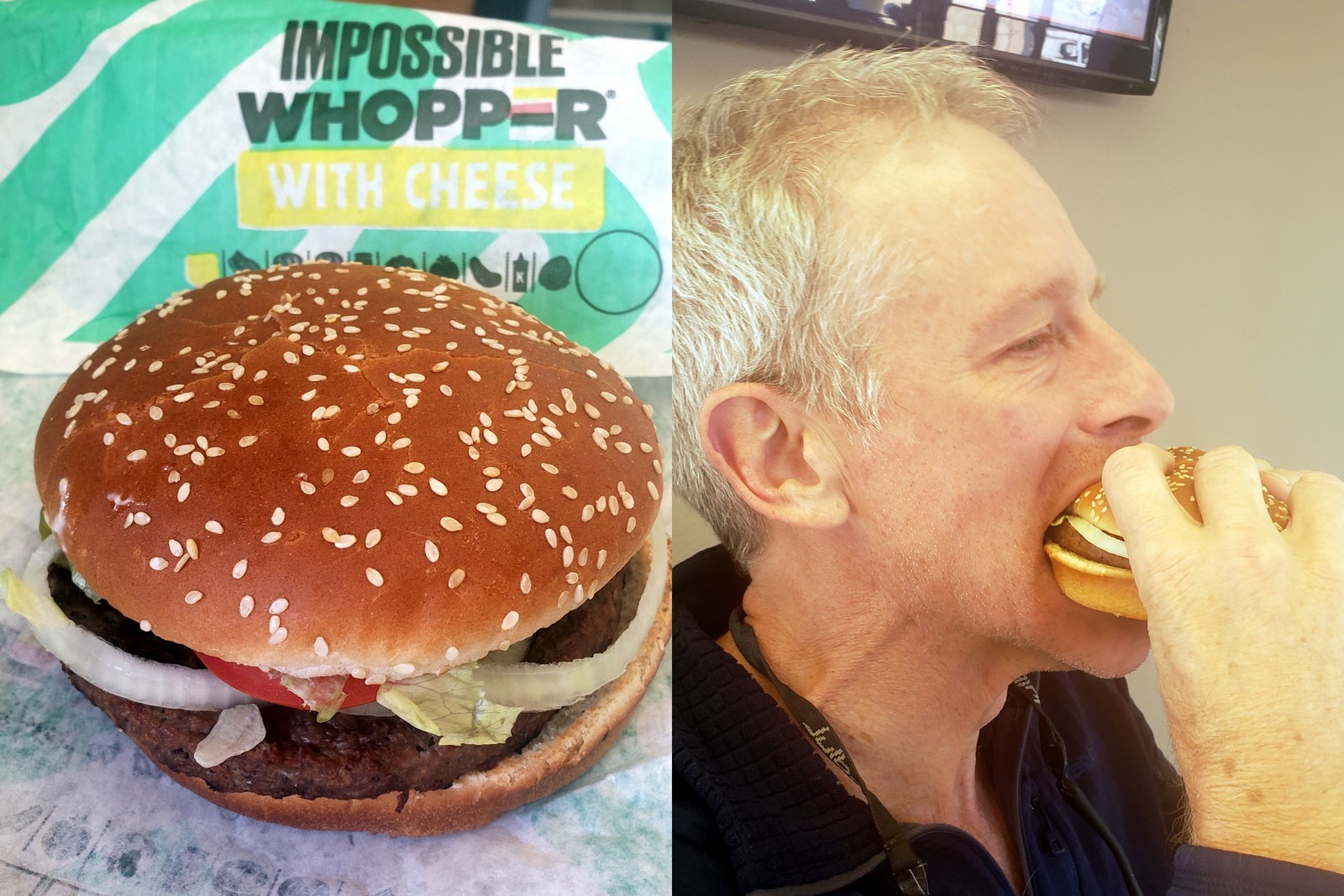
Enrique Abeyta interview; Update on Beyond Meat; When your stock's in a bubble, issue stock!; I tried the Impossible Whopper; How the Man Who Nailed Madoff Got GE Wrong; I'm speaking at the Robin Hood Investors Conference
1) During the Stansberry Conference last week, my colleague Enrique Abeyta, who just launched the Empire Elite Trader, did an 11-minute interview in which he discussed why:
- It's healthy that mini-bubbles are bursting – and the (deserving) losers are private equity investors
- Owning 10 stocks is enough
- Most people should never invest in IPOs
- He made money during every major market downturn in the past two decades
2) In my July 30 e-mail, I compared a current market darling, plant-based meat substitute company Beyond Meat (BYND), with a former one, cannabis stock Tilray (TRLY), writing:
Both Tilray and Beyond Meat are real companies, not frauds, in exciting sectors that are sure to see tremendous growth. But trading at over 100 times trailing revenues, their stocks were or are caught up in obvious bubbles. The Beyond Meat one today isn't quite as extreme as Tilray's was at its peak, so I'll make a somewhat more conservative forecast: The stock will be cut in half – below $100 – by the end of the year.
That day, Beyond Meat's stock closed around $195. It closed yesterday at $126.31, down more than 35% and well on its way to hitting my price target...
3) At the time, Beyond Meat did a secondary offering at $160.
Given that this was well below where the stock was trading, there was talk that the Wall Street banks had taken advantage of the company. However, I thought it was smart of Beyond Meat to take advantage of the obvious bubble in its stock and convert it into as much cash as possible at pretty much any price.
It's the exact advice I gave to Tilray's CEO and CFO during the Q&A session after their presentation at the ICR Conference on January 14, when TLRY shares were trading around $100. (They closed yesterday at $20.66.)
They should have listened... In the first two quarters of this year, Tilray has spent $124 million on acquisitions and $26 million in capital expenditures, and has lost $110 million in cash flow from operations. As a result, the company's healthy net cash position of $89 million at the end of 2018 has reversed to a dangerous net debt position of $187 million on June 30. No wonder 38% of the float is short. This stock smells like a zero...
My advice to Beyond Meat today is the same: Beg Wall Street to shake you down again (ha!) to raise as much cash as possible, at any price, before the stock collapses further.
4) I've never had the opportunity to try Beyond Meat's product (I hear it's excellent), but I recently tried the burger made by a competitor, Impossible Foods, which has partnered up with Burger King to roll out the Impossible Whopper. Here are pictures...
As fast-food burgers go, I found it tasty and satisfying. If you hadn't told me, I would never have guessed that it wasn't beef.
5) If you're an insurance accounting junkie like me, you'll enjoy this in-depth Fortune article, How the Man Who Nailed Madoff Got GE Wrong. Excerpt:
Because STAT is more conservative than GAAP, the STAT reserves required by the state regulators are generally a lot higher than the GAAP reserves on the official balance sheet for reporting to shareholders. That's the case now with GE. And that difference is critical in evaluating the Markopolos case. Markopolos claims that under a new rule, GAAP reserves need to climb to the level of STAT, causing a big loss and endangering the entire company...
He states in the introduction to his report, GE will suffer "a non-cash GAAP charge which accounting rules require." He asserts that this $10.5 billion charge to earnings will "result in a devastating, $10.5 billion hit to GE's already thin shareholders' equity."
Markopolos is incorrect. "Nothing in that FASB rule requires that STAT and GAAP be the same," says Stern. Stern's view is echoed by all the accounting experts I've interviewed, none of whom have professional ties to GE. The new FASB rule on calculating GAAP reserves imposes requirements that have nothing to do with raising GAAP to the level of STAT, although it may coincidentally bring them closer together, and will not cause any hit to GAAP earnings.
6) I'm speaking once again at the Robin Hood Investors Conference in New York City on Monday, October 28, and Tuesday, October 29 – only two weeks from now!
The conference brings together the brightest and most influential policy experts, investors, and innovators to share actionable, moneymaking insights – and 100% of ticket sales go directly to organizations helping New Yorkers in need.
This year's lineup includes a who's who of Wall Street titans, including: Paul Tudor Jones II (Tudor), Bill Ackman (Pershing Square), Ben Horowitz (Andreessen Horowitz), Robert Lighthizer (U.S. Trade Representative), Steven A. Cohen (Point72), Larry Robbins (Glenview), Lee Ainslie (Maverick), John Griffin (Blue Ridge), Anthony Bozza (Lakewood), David Solomon (Goldman Sachs), and more.
Click here for more information and to register.
Best regards,
Whitney

